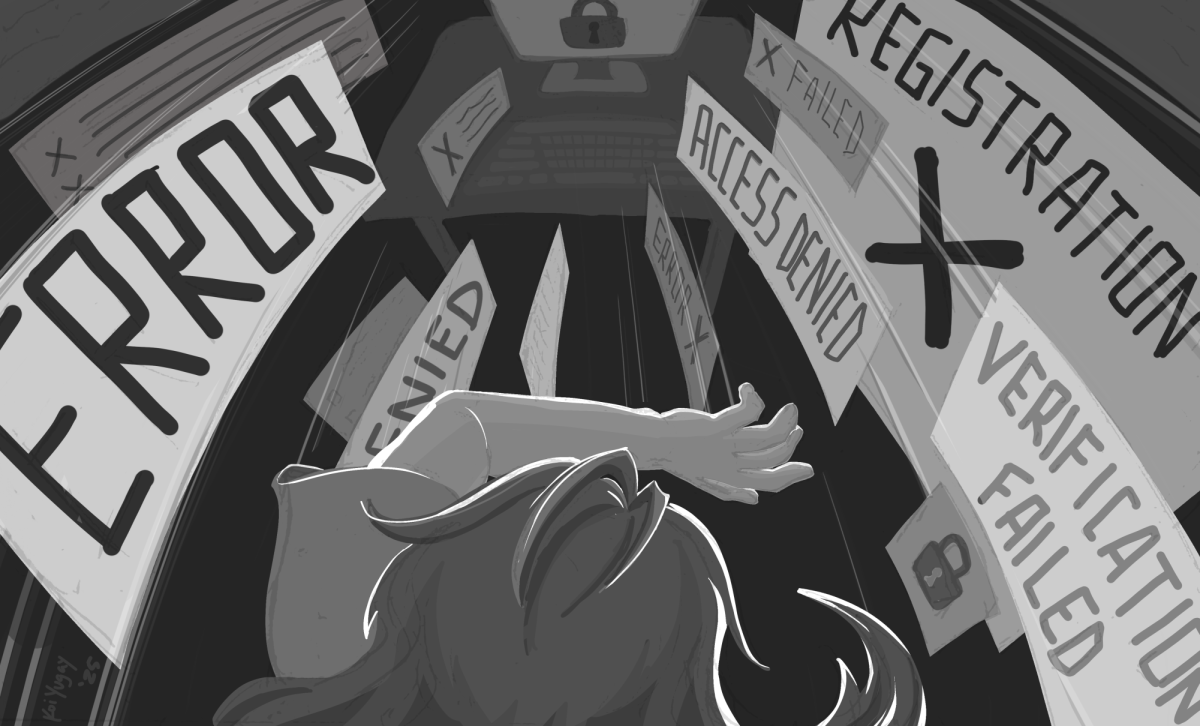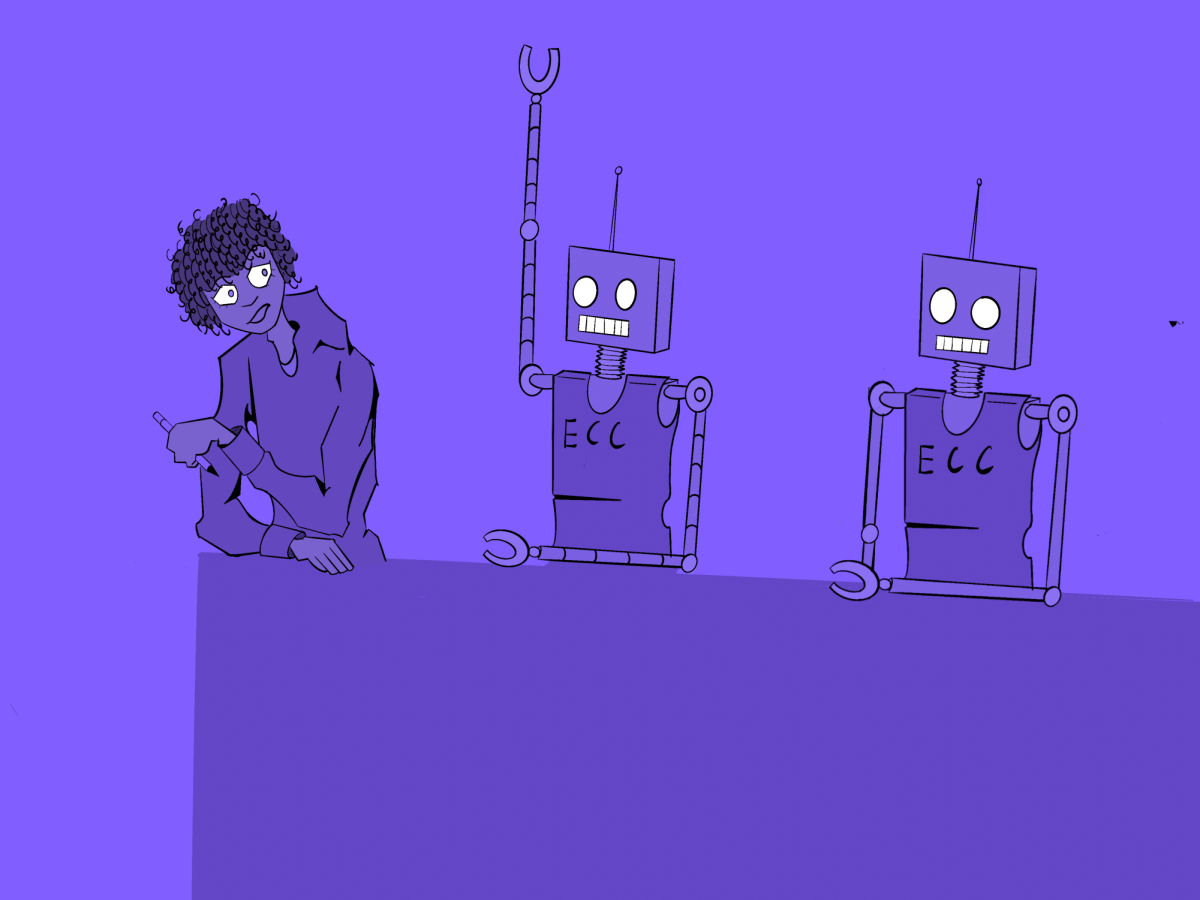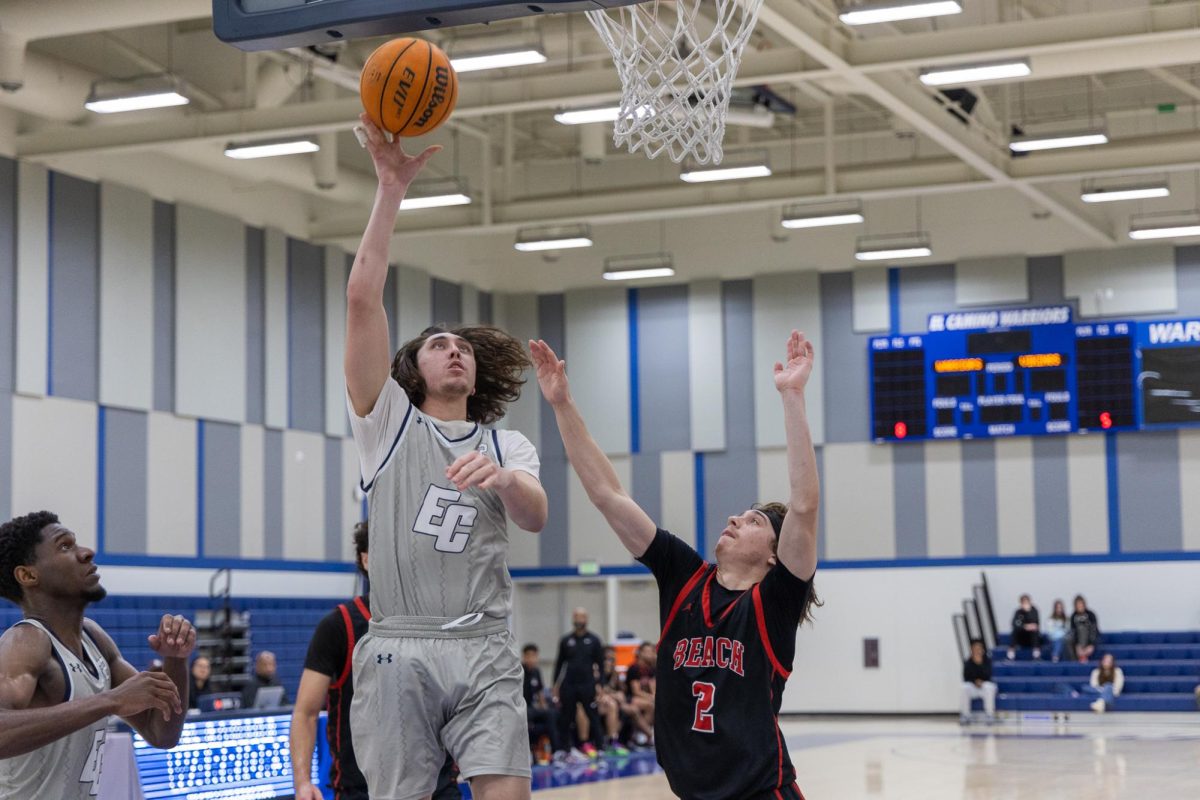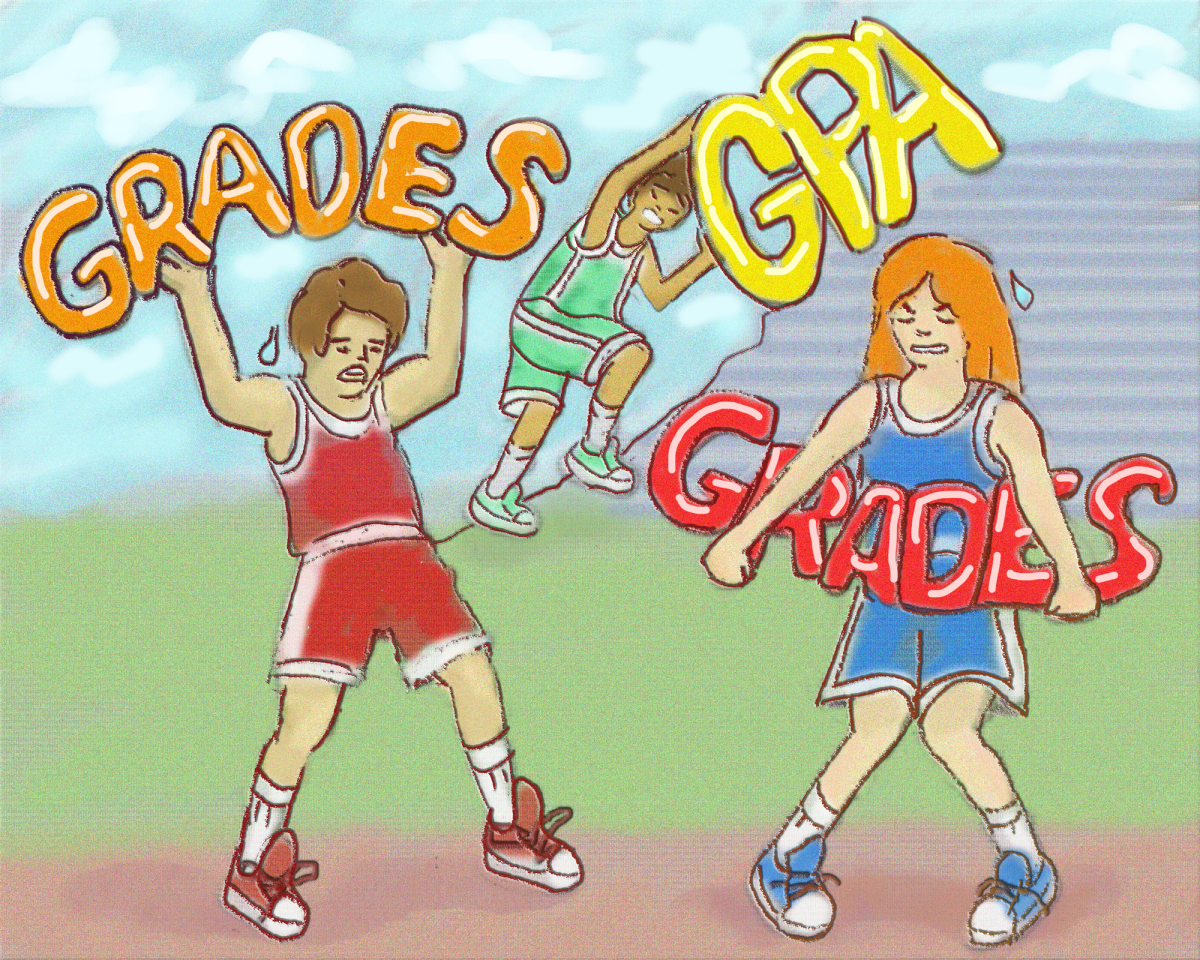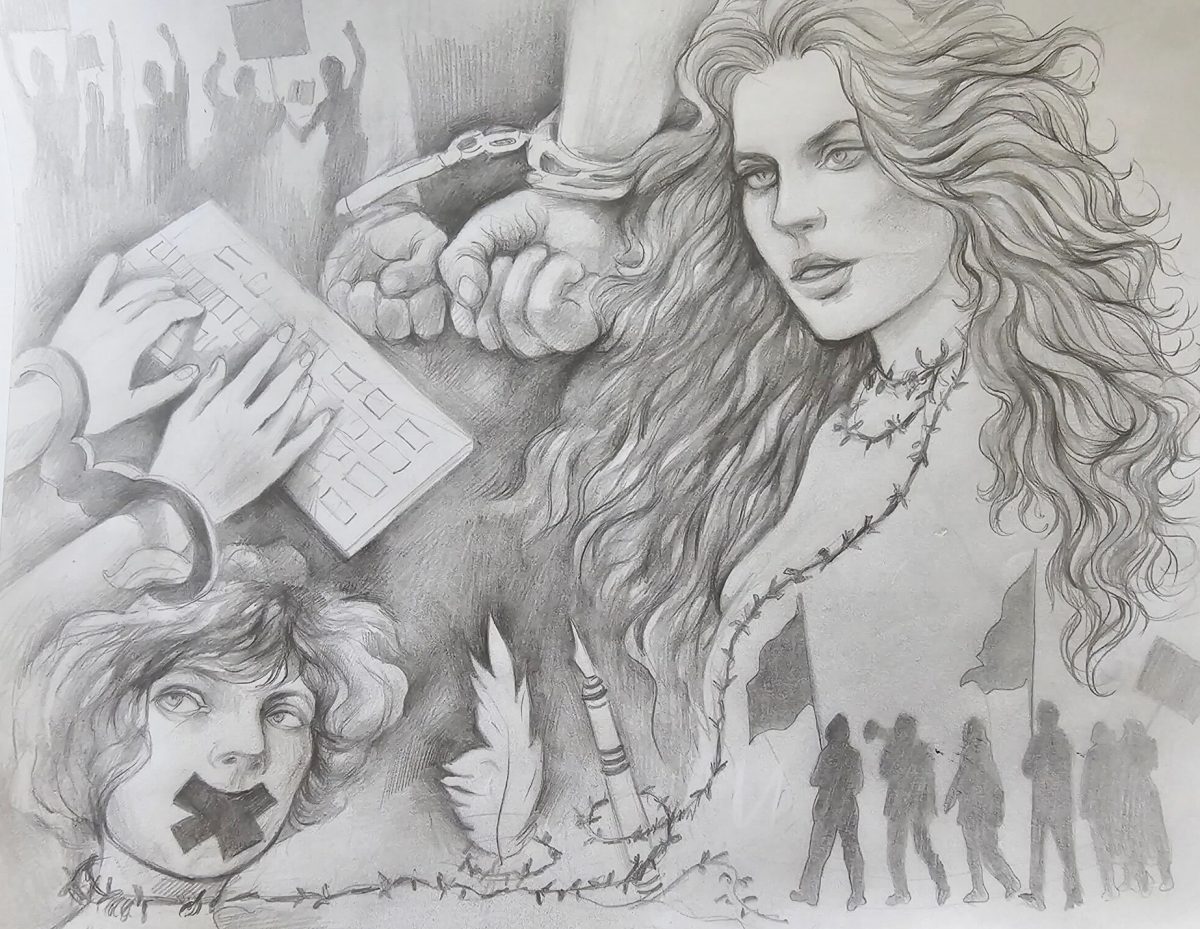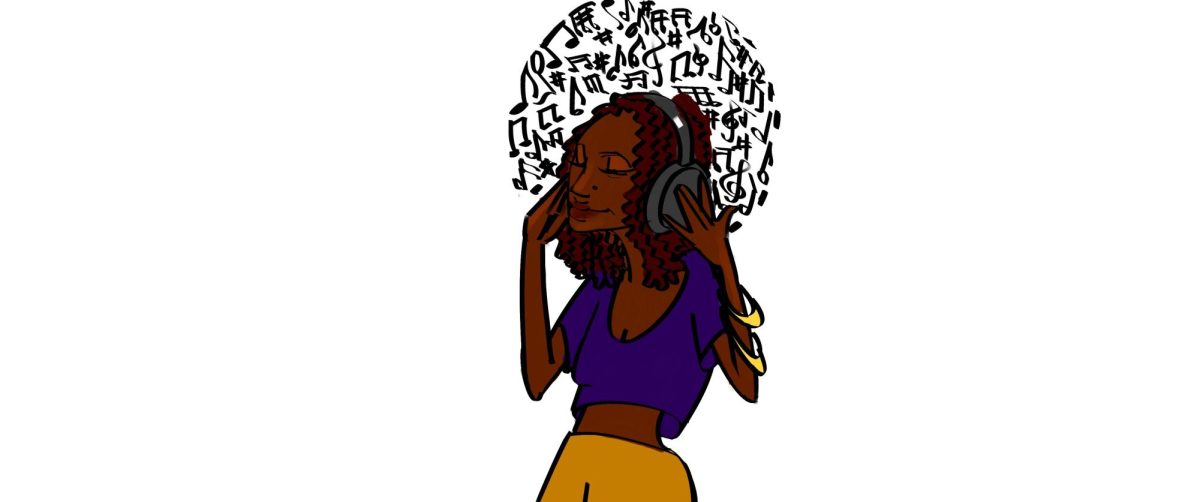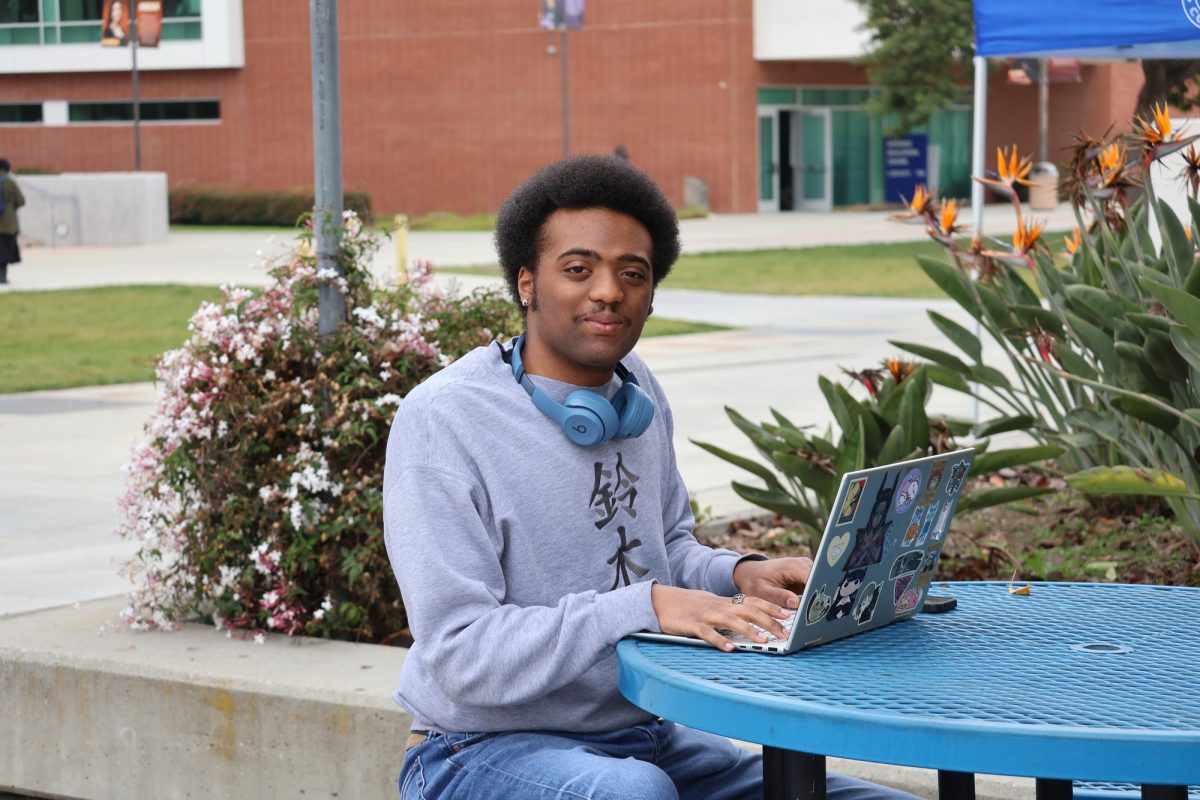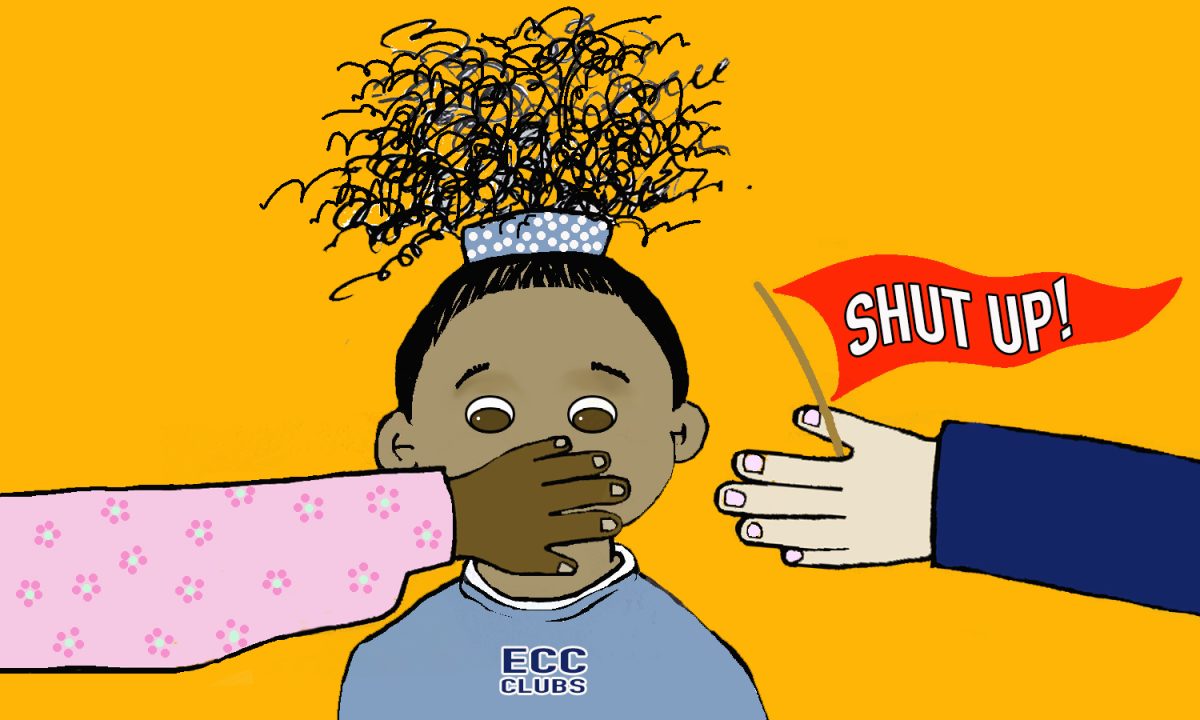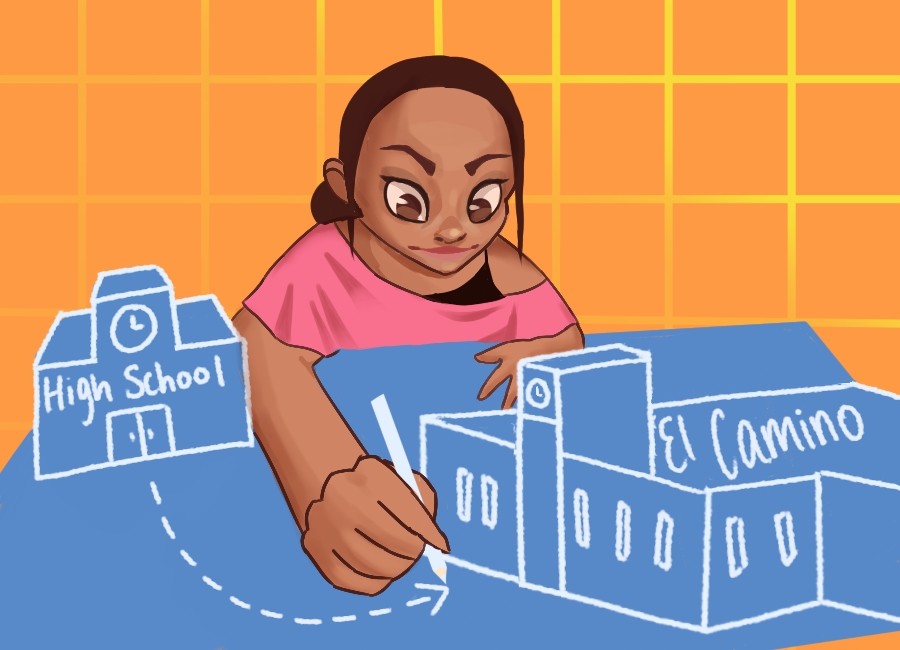I remember sitting at my desk in my room, the sun shining brightly through my window while I looked at the assortment of papers I’d picked up from Student Services.
Did I meet the requirements for my major? Should I call a counselor?
When I look back now at January, it seemed as though my meticulous reading and revising class schedules to match the criteria of my major each semester paid off.
However, my journey towards that end was clouded by the adult education stereotype running rapid in my mind.
Being 24-years-old and a first-generation college student, I refused most educational guidance because, at this age, I felt embarrassed.
In 2018, I promised myself that I would not be at El Camino longer than two years, my plan was to jet line the transfer process and do classes throughout each semester — winter was the worst.
I would roam around the campus every morning, spiraling downward while feeling drowned in English rhetoric and analysis essays, trying to wrap my mind around the uneasiness of feeling unprepared.
Classes were held five days a week, two hours a day, with 16 weeks worth of assignments condensed into five.
Eventually, I gave in to my fears of not graduating and sat with a counselor in-person, where we discussed whether or not I was on track to meet the 60 unit requirement to transfer to a California State University.
We shared conversations over new goals and aspirations and I felt that I was making progress. However, that feeling was short-lived.
The news of the first few cases of COVID-19 in the United States was circulating in newsrooms across the nation and I thought to myself, “how bad could it really be?” Spring semester began a few weeks later.
Quickly, campus became abuzz with worry and concern for faculty and students alike. Each lecture began with an open discussion of how the virus will be contained and handled by campus officials.
I continued to reorganize my 15 unit workload among the new panic across campus and decided to brave the Student Services Center, one more time.
I didn’t feel all too confident with making sure I had all my required courses, so I wanted to check my course load by filling the intent to graduate form for spring semester.
The sleek, modernized building had an inviting stairwell in the middle, accompanied by a student-run help desk.
I got to the top of the stairwell, turned left and grabbed a seat as they called my name from walk-in counseling appointments.
“Rachel Maldonado,” echoed throughout the building as I entered and rushed abruptly into a seat.
Side by side, I sat with the counselor, who handed me the flier to fill out and looked directly at me with daggers in his eyes.
I forgot a pen.
He persisted to raise his voice at me for not being better prepared with a black inked ballpoint pen.
“If you don’t have a pen, how do you think you’re ready to graduate,” he said in a condescending tone.
That experience alone left me traumatized as my intentions were to get answers to the questions I had, so I could figure out if I would graduate earlier than expected or have to wait until summer semester.
Instead, I was politely bashed by forgetting a pen to fill out an application when he had an assortment of pens already on his desk.
This doesn’t discredit the work of counselors and faculty at El Camino College, however it perpetuated the hesitance that I had in asking for help. Though, it also made me realize I was still willing to hide under the stigma of being that adult in college, instead of taking in all the help and resources I needed to succeed.
A few weeks later, myself and fellow journalism students were gathering in the newsroom by the sound of rainfall when we were interrupted by a ping-sound alert from a mass email sent to all students and faculty.
The campus was to be shut down temporarily due to the onset of the COVID-19 pandemic.
My heart dropped as I contemplated my educational path and where it would go under stay-at-home orders and a plethora of Zoom class meetings. However, I pushed forward, hoping the unknown factors of a pandemic couldn’t outweigh the path I paved for myself to finish my degree and transfer.
I let my compulsive organizational skills take a rest, as I accepted that needing help and asking questions, especially during a pandemic, is OK and nothing to be afraid of.
The counselor I sat down with at the beginning of the year offered her services to me again in a simple email and we made a meeting through the scheduling system for El Camino’s counseling services.
I chose my preferred method of a phone call and she assured me I was on track, until upon further review of my transcript, she realized I was one unit short.
It became apparent that my course unit counting skills weren’t up to par as I had expected, and without my counselor’s expertise, I wouldn’t have transferred in time for spring admittance next year.
Seven university applications and a multitude of Zoom classes later, the process couldn’t have been more rewarding.
After trying to pick apart what numbers represented what courses in a list of thousands, going through a mid-educational crisis while navigating major changes and overcoming the hurdles of unease and anxiety, I made it.
Students should not bear the burden of figuring out everything alone, but alongside research, it’s also the students’ responsibility to step up and ask questions; this is your opportunity.



